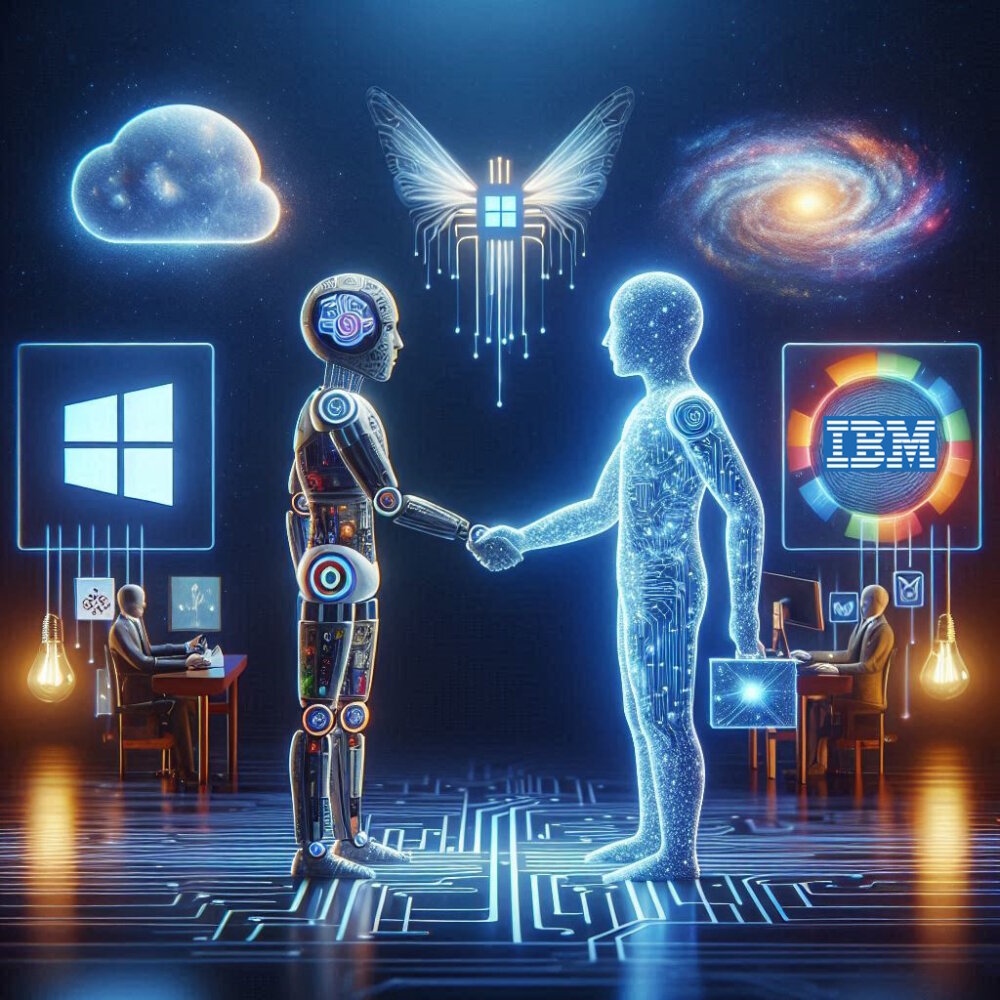
Who’s suing OpenAI and how much for?
Everyone, it seems, has a view about artificial intelligence. But some have put their money where their mouth is by launching legal action against the companies behind the current crop of AI. This year sees one of the most significant, as the New York Times sues OpenAI and Microsoft over ChatGPT.
News organisations and artists argue that tools such as ChatGPT, DALL-E and Midjourney infringe copyright and plagiarise their work. These generative AI tools are based on large language models (LLMs), which have all been fed information, text and artwork created by humans. When you prompt the AI to answer a question or create an image, it draws on this pool of other people’s work to generate text and images.
Artists and news publishers point out that they weren’t asked if their work could be fed into AI systems – and they certainly weren’t paid for this use of their work. That’s why many have taken legal action.
Here’s the latest on who’s suing OpenAI, from Sarah Silverman and George RR Martin to ordinary folk affected by AI.
Related reading: OpenAI’s Preparedness Framework means board can veto CEO Sam Altman
Newspapers and publishers
In December 2023, the New York Times launched a lawsuit against both OpenAI and Microsoft, claiming that ChatGPT and Microsoft’s search engine Bing plagiarise the news organisation’s content. The lawsuit shows examples of ChatGPT spitting out word-for-word excerpts from the paper’s articles.
The NYT argues this copyright infringement costs the company subscription and advertising revenue. It also questions OpenAI’s claims of fair use, because ChatGPT competes with new outlets as a provider of information.
The lawsuit also highlights AI’s tendency to simply make stuff up, known euphemistically as ‘hallucinating’. The complaint alleges that Bing attributed misleading information to the New York Times when no such articles were ever published.
Some commentators see this as a watershed case which could end up before the Supreme Court, potentially marking a major test of AI regulation. And the stakes are high: the NYT lawsuit refers to “billions of dollars in statutory and actual damages”.
Other major news outlets – including the BBC, CNN and Reuters – have blocked OpenAI’s web crawler, preventing ChatGPT from accessing their content. Depending on how the NYT suit goes, other major players could take action against OpenAI, Microsoft or other AI companies.
Authors and artists
Authors and groups representing writers have launched several legal actions against OpenAI. In September 2023, the US Authors Guild launched a copyright infringement lawsuit.
“The market dilution caused by AI-generated works will ultimately result in a shrinking of the profession,” the Authors Guild said in a statement, “as fewer human authors will be able to sustain a living practising their craft, and shut out important, diverse voices.” They also argued that unregulated generative AI would “lower the quality of books, journalism and public discourse fundamental to democratic culture”.
Bestselling signatories to that action included John Grisham, Jonathan Franzen and Game of Thrones author George RR Martin.
A separate complaint in September united authors including Michael Chabon, David Henry Hwang, Rachel Louise Snyder and Ayelet Waldman. In November, several similar actions were folded in with this one, including a complaint lodged in July by author and comedian Sarah Silverman.
Another legal action brought by journalist and author Julian Sancton named Microsoft as well as OpenAI, arguing that training AI involves copying non-fiction and academic material.
Regular people
In June 2023, a group of individuals launched a lawsuit against OpenAI and Microsoft for scraping the personal data of internet users, including children. The plaintiffs dropped the case in September.
Also in June, Georgia-based radio host Mark Walters sued OpenAI for defamation based on ChatGPT supplying false information. When a journalist asked the AI system to summarise a real court case, ChatGPT made up false allegations against Walters.
Coders
In November 2022, a class action lawsuit was launched against Microsoft and programming site GitHub along with OpenAI. Developers say their code was used to train GitHub Copilot, an AI coding tool.
Who isn’t suing OpenAI?
Some publishers and content creators have reached a deal with OpenAI to use their content. The Associated Press, Politico and Business Insider are among the publications which are cited by ChatGPT under license.
Related coverage
NEXT UP

IBM bolsters AI push with Microsoft Copilot launch
In a bid to boost its AI offering, IBM Consulting will enable enterprises to create and manage copilots including Copilot for Microsoft 365

Andrew Kay, Director of Systems Engineering APJ at Illumio: “The most worrying development with ransomware is that it has evolved from simply stealing data to impacting IT availability”
Andrew Kay, Director of Systems Engineering APJ at Illumio, has 20 years’ experience helping organisations strengthen their cyber resilience. We interview him as part of our Threats series on cybersecurity.

The imperative of making a career in the data centre industry attractive
Adelle Desouza addresses the problem of an ageing workforce in the data centre industry as well as how to make it an attractive career for new generations
